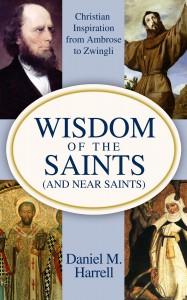Today’s guest post comes from JC Elliott, one of an excellent class of students from Bethel Seminary who recently studied the intersection between theology and science.
If you have made it past the daunting title of this post you are either a glutton for punishment or a fellow quantum junkie (for transparency, I’m no quantum physicist); either way, before we dive in, a simplified example of quantum theory is needed. This is not the place to fully describe the entirety of quantum physics, so we will be considering Schrodinger’s cat and the Double Slit experiment. Essentially the Double Slit experiment demonstrated electrons act as both a wave and a particle, until they are interacted with. Before measurement electrons are in superposition as both a wave and a particle. Concluding, a part of quantum physics is dependent on the observer.
Confused yet? Good you’re beginning to understand quantum physics, stay with me though it gets better.
An easier way of thinking about this comes from a thought experiment contrived by Schrödinger. For the sake of brevity I won’t recount the experiment but leave that to the reader. But essentially the cat is in superposition, much like the electron, the cat is both dead and alive prior to observation.
Yes, the cat is both dead and alive, weird right?
Quantum physics has changed how physicists discuss the nature of reality and the future. In classical physics (Newtonian physics) there is a tendency towards a determinist understanding of the future. Quantum physics disagrees with this determinist observation. Quantum physics raises many questions about the objectivity of reality, possibility of multi-verses, and future probabilities.
There are numerous implications of quantum physics on theology but let’s concentrate on the implications of an open future. In open theism the future is not determined, but only possibilities, some more probable than others, until they are experienced in reality by free-will agents. The imagery many open theists use to describe the future is strikingly similar to that of quantum physicists. The analogy is one of a chess board; there are possibilities for the moves within given parameters. One can not know how the game will play out, but only possibilities. Once a move is played, the possibilities collapse to form the experienced reality. Therefore, God cannot know the future because there are only probabilities (some more probable than other), and not a determinent reality. However, God does know all future possibilities and all resulting possibilities, remaining omniscient.
So does quantum theory support open theism? I think the answer is a hesitant, yes. What Quantum physics tells us is that the universe is not deterministic, there is a sense of indeterminacy, much like the tenants of open theism. However, a spirit of humility regarding theories of physics and theology is needed. Physics has changed over eons as we better understand the natural world. Old theories have been debunked and new ones emerged. Perhaps in 100 years physicists may discover a new method of perceiving the world that deconstructs many aspects of quantum physics.
The same can be true for theology; in the church’s longstanding history there are revolutionary theologians who have postulated something extraordinarily different about the nature of God. Open theism, as a relatively new theology can give us a framework for thinking of God in light of quantum physics. If in 100 years quantum physics is disproved, or open theism invalidated then we simply can reframe how we think about God. We cannot fully comprehend the God of creation, so these are just tools to help us with what we can comprehend.
So does quantum theory and open theism help us think about God, yes, but only as frameworks that can help us better understand God.
For more information on quantum mechanics you can get your doctoral degree from the following prestigious universities found here.
For a deeper look into Open Theism check out Boyd’s book God of the Possible.
Also, please don’t lock your cat in a box with poison, even for the sake of science.











